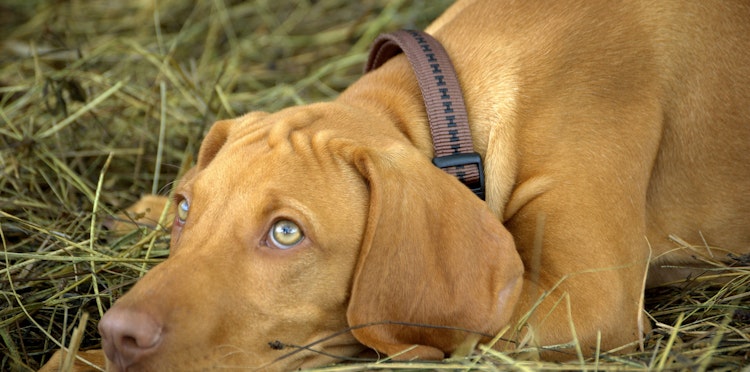Why is my dog eating grass?

There are quite a few theories and old wives’ tales as to why dogs do this, but in fact, there’s not very much evidence to say exactly why they do it! Let’s have a look at some of the thinking behind this habit.
Is my dog trying to make itself sick?
This is probably the most well-known theory about why dogs eat grass. However, it’s actually not usually the case. There are very few reports of owners seeing symptoms of illness in their dogs before they eat grass, and with those that had unwell dogs, only a tiny proportion reported any vomiting afterwards.
In fact, healthy dogs are more likely to eat grass than those feeling unwell. However, with some anxious dogs, you may see them quickly eating longer grass, which stimulates their vomiting reflex.
Is it normal for my dog to eat grass?
Yes! With so many dogs eating grass, it really can be considered normal behaviour.
- Some dogs probably enjoy the taste
- It may aid digestion – but instead of a dog eating grass for fibre you could add a small amount of vegetable or wheatgrass to their diet
- Boredom – particularly if a dog is bored or lonely in the garden they can be more likely to eat grass. Make sure you spend plenty of time outdoors with them, playing games. Balls and various toys, such as puzzle toys and chew toys, will help to keep your dog occupied
- A natural behaviour – wolves also eat grass. As dogs are descended from wolves this behaviour has likely been passed down from their wild ancestors
Safety first
- Make sure that your garden is free from any toxic pesticides or other chemicals that could harm them. You could consider creating a pet-safe space if you have a larger area outside
- It’s also a good idea to make sure there are no other poisonous plants in your garden
- Regularly check for and clean up any poo to help reduce the risk of any parasite transmission
- Give your dog a thorough regular grooming session to check for any grass seeds that may be attached to their fur. The typical areas to check are; eyes, ears, nose, armpits, and their toes – as this is where the seeds often get lodged.
If you are at all concerned – your dog might be eating too much grass, not eating their usual diet, or has been vomiting – then contact your vet for advice.


